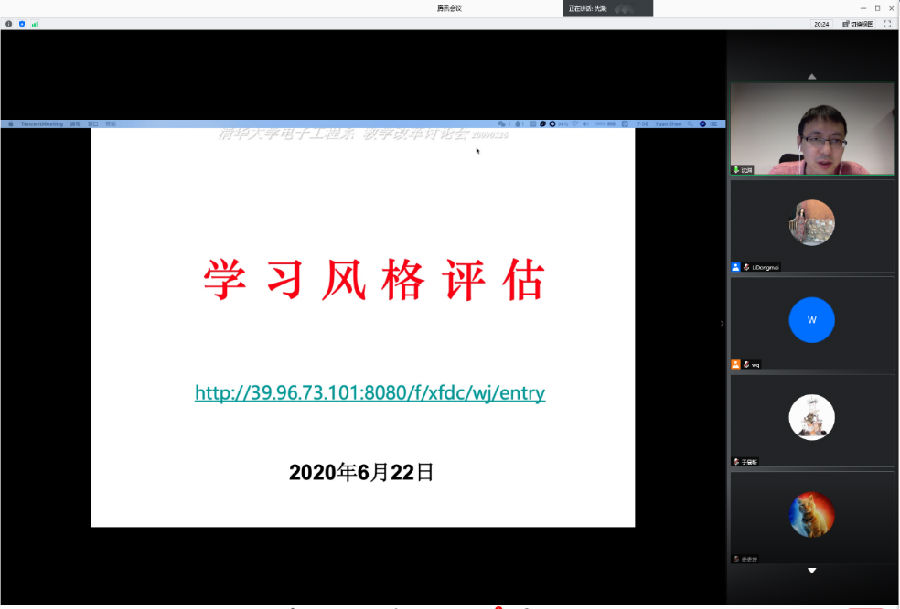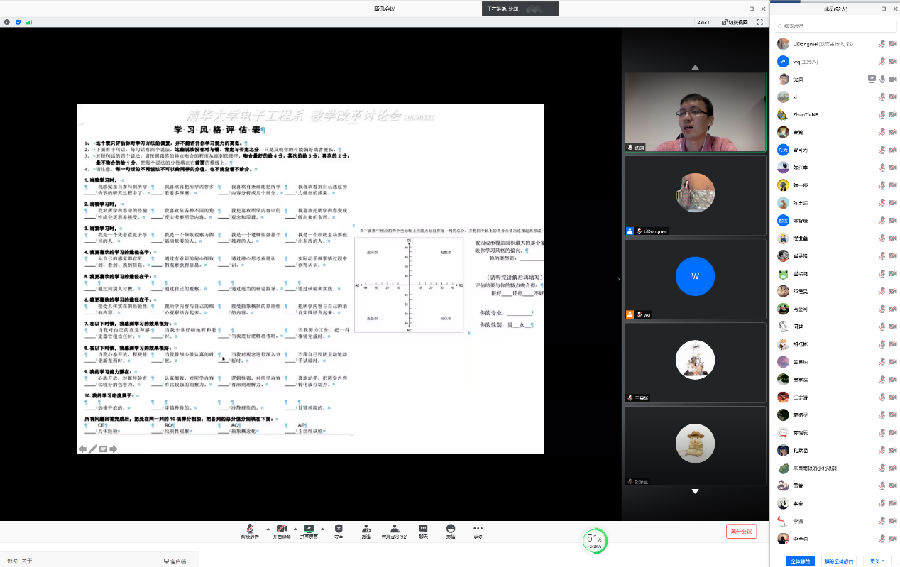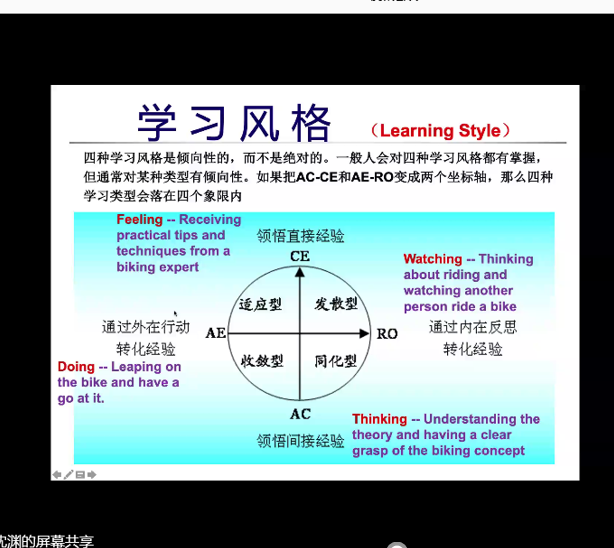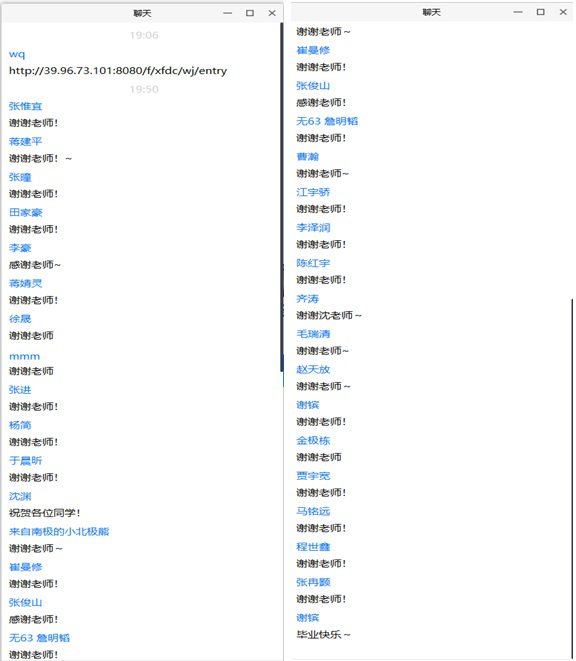At 19:00 on June 22, 2020, undergraduates in Grade 6 of the Department of Electronic Engineering completed the last class before graduation-"learning style" assessment on the Tencent conference online. The "learning style" assessment for graduating undergraduates is a tradition that the Department of Electronic Engineering has maintained for many years. Its purpose is to help students better understand themselves and take the road ahead. In previous years, it was arranged on the scene of the graduation ceremony of the department. This year, it was changed to be conducted online due to the epidemic and chaired by Shen Yuan, Deputy Chair of the Department. The number of participants exceeded 100.

The students filled out the learning style assessment form online through a small program developed by the Teaching Office. Then, Mr. Shen analyzed and introduced the content and meaning of the learning style.

The learning style assessment is to reflect the way that people have or prefer when learning mainly based on experience learning theory, namely, the way with personal characteristics shown by learners when studying and solving their learning tasks. In the early 1980s, David A. Kolb made a unique analysis of the learning process cycle and divided the learning process into four interrelated links: concrete experience, reflective observation, abstract conceptualization and active experimentation.
Ms. Shen usedSignals and Systems,Random Processand other courses that students had learned as a metaphor to map the understanding of different stages of the course to different stages of learning, and explain the profound in simple terms; In the meantime, he used the process of learning to ride a bike as a metaphor for the iterative process of comprehension and transformation to help students understand.

Through analyzing the data in the assessment questionnaire, four different learning styles can be roughly distinguished:
People with a convergent learning style are good at discovering the practical value of theories, have stronger decision-making abilities, and can effectively solve practical problems; People with a divergent learning style are good at examining specific situations in many ways, and often find answers to problems from multiple perspectives by use of the observation method. Such people often have rich imagination and sensitivity; People with an assimilated learning style are good at understanding the information within the large scope and can present it in a concise and logical form. Such people are usually interested in theories and abstract concepts; People with an adaptive learning style are good at hands-on, enjoy implementing challenging plans, and are capable of performing tasks.
Mr. Shen made a simple analysis of the characteristics of different styles and fields that they are good at. He emphasized in the conclusion that the Learning Style Questionnaire is only of significant reference statistically. You can understand your own style, develop the strong points and avoid the weak points, and learn from each other through evaluation. He hoped to provide some useful references for students' future career development.
The last class before graduation is also repeated instructions from the Department of Electronic Engineering to students before leaving. I wish the students a bright future and a happy graduation!
